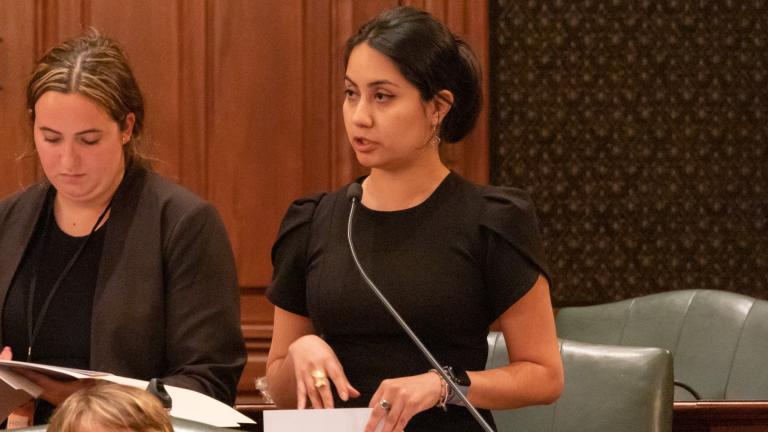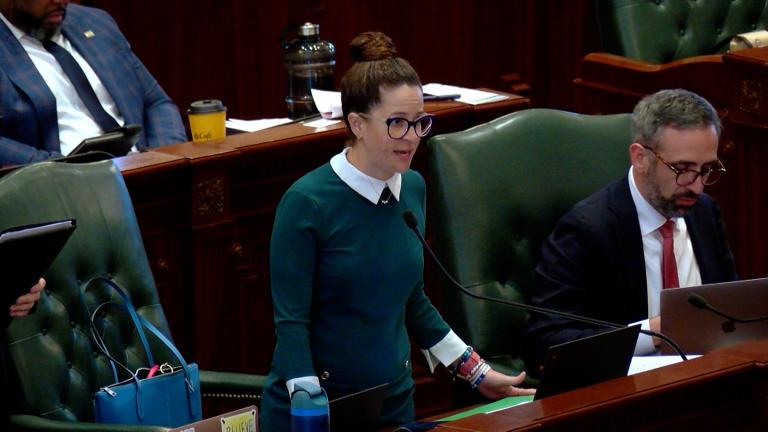 (Credit: ckstockphoto / Pixaby)
(Credit: ckstockphoto / Pixaby)
Doctors would gain the ability to more easily learn patients’ end-of-life wishes under a measure advancing in Springfield.
Currently, doctors say it can sometimes be difficult for medical personnel to access those forms, especially if a patient is incapacitated or having an emergency away from their medical home.
“Regardless of what age you are, when you decide how you want your life to end, or when you have made your end-of-life decision, you want it to be upheld,” said state Sen. Julie Morrison, D-Deerfield.
Morrison said she’s been working for a decade on the creation of an electronic database that would keep a record of people’s end-of-life treatment plans, as detailed in the state health department’s Public Health Uniform Practitioner Order for Life-Sustaining Treatment, or POLST, form. That document is more commonly known by its previous incarnation, a Do Not Resuscitate (DNR).
“[A POLST] allows an individual, in consultation with his or her health care professional, to make voluntary advance decisions about CPR and other life-sustaining care in the event the individual’s breathing and/or heartbeat stops or based on the patient’s medical condition and preferences,” the Illinois Department of Public Health’s website explains.
The forms must be signed by a physician in order to be valid, which means they’re given the weight of a medical order, said Dr. Julie Goldstein, a clinical ethicist and palliative care physician who serves as the medical director for advanced care planning at Advocate Health.
Goldstein is also on a state POLST committee.
“This medical order enables first responders and health care providers to know and honor a patients’ preference,” Goldstein said. “It is especially useful if a patient suffers a cardiac arrest.”
But during a medical crisis, Goldstein said doctors can have a hard time locating the completed forms, which may be stored on paper or online.
“That creates a problem, if a physician doesn’t know where to look for a patient’s form, or doesn’t know that the individual even has one,” Morrison said.
The senator’s measure (Senate Bill 2644) requires the Illinois Secretary of State’s office to create a POLST registry that all Illinois accredited hospitals could access. It would be in a “single online location,” as Morrison described it.
Physicians wouldn’t be mandated to check the database, however.
The Illinois State Bar Association has lobbied in favor of the change for years, said David Eldridge, a lobbyist for the group.
“The concern was, and is, that people who show up in emergency rooms and other health care settings at stressful times and are asked to prepare documents under those strenuous circumstances,” Eldridge said. “This is not in the best interest of anyone.”
The registry would allow patients’ previously, well-thought end-of-life decisions to be accessible, clearing confusion for doctors and loved ones alike, Eldridge said.
Patients with the cognitive and physical capacity to do so would have the ability to change or void their POLST at any time.
The legislation won Senate approval, and is now before the House. Advocates say the secretary of state – who would be charged with promoting the registry in 2026, before a 2027 debut – is on board.
Another, more controversial proposal (Senate Bill 3499), that would allow patients with terminal illnesses to pursue physician-assisted suicide has not advanced.
Its sponsor, state Sen. Linda Holmes, D-Aurora, said she doesn’t expect to move the bill this spring, as she is continuing to organically build support and plans conversations about it over the summer.
“It’s a time of education and talking to constituents,” Holmes said.
Contact Amanda Vinicky: @AmandaVinicky | [email protected]








